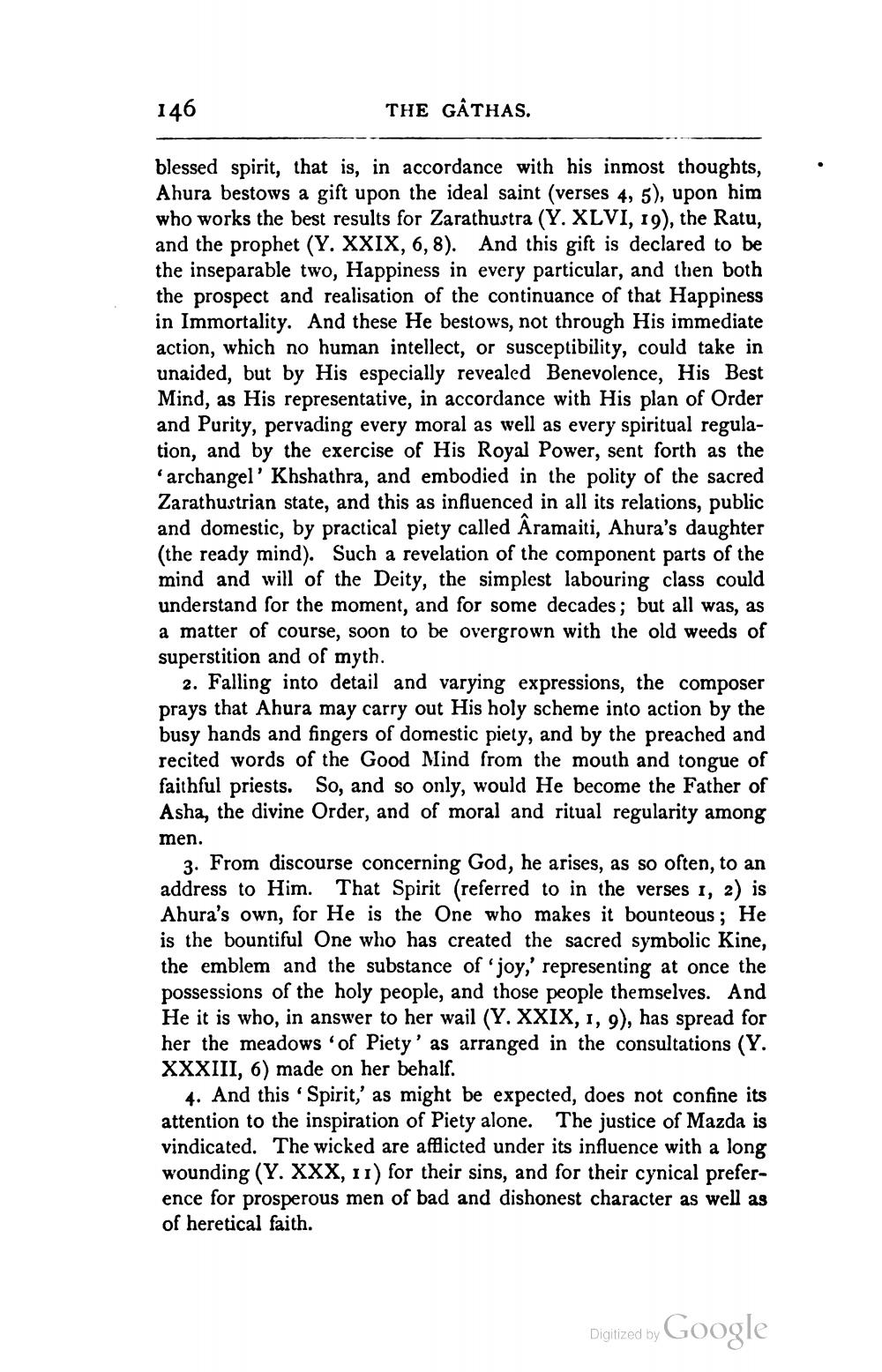________________
146
THE GÂTHAS.
blessed spirit, that is, in accordance with his inmost thoughts, Ahura bestows a gift upon the ideal saint (verses 4, 5), upon him who works the best results for Zarathustra (Y. XLVI, 19), the Ratu, and the prophet (Y. XXIX, 6,8). And this gift is declared to be the inseparable two, Happiness in every particular, and then both the prospect and realisation of the continuance of that Happiness in Immortality. And these He bestows, not through His immediate action, which no human intellect, or susceptibility, could take in unaided, but by His especially revealed Benevolence, His Best Mind, as His representative, in accordance with His plan of Order and Purity, pervading every moral as well as every spiritual regulation, and by the exercise of His Royal Power, sent forth as the ‘archangel' Khshathra, and embodied in the polity of the sacred Zarathustrian state, and this as influenced in all its relations, public
ractical piety called Âramaiti, Ahura's daughter (the ready mind). Such a revelation of the component parts of the mind and will of the Deity, the simplest labouring class could understand for the moment, and for some decades; but all was, as a matter of course, soon to be overgrown with the old weeds of superstition and of myth.
2. Falling into detail and varying expressions, the composer prays that Ahura may carry out His holy scheme into action by the busy hands and fingers of domestic piety, and by the preached and recited words of the Good Mind from the mouth and tongue of faithful priests. So, and so only, would He become the Father of Asha, the divine Order, and of moral and ritual regularity among men.
3. From discourse concerning God, he arises, as so often, to an address to Him. That Spirit (referred to in the verses 1, 2) is Ahura's own, for He is the one who makes it bounteous; He is the bountiful One who has created the sacred symbolic Kine, the emblem and the substance of joy, representing at once the possessions of the holy people, and those people themselves. And He it is who, in answer to her wail (Y. XXIX, 1, 9), has spread for her the meadows of Piety' as arranged in the consultations (Y. XXXIII, 6) made on her behalf.
4. And this 'Spirit' as might be expected, does not confine its attention to the inspiration of Piety alone. The justice of Mazda is vindicated. The wicked are afflicted under its influence with a long wounding (Y. XXX, 11) for their sins, and for their cynical preference for prosperous men of bad and dishonest character as well as of heretical faith.
Digitized by
Digitized by Google




